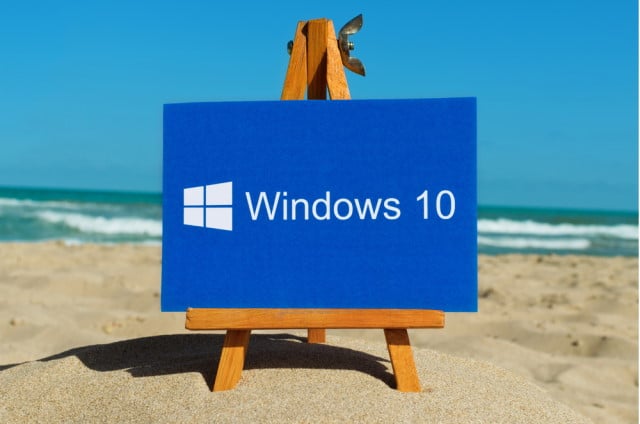Microsoft releases preview version of KB5003212 update for Windows 10

Microsoft has released a new update for Windows 10 version 1909, around a week-and-a-half after this edition of the operating system reached end of service.
KB5003212 is a preview version of a cumulative update that's currently available as an optional install ahead of a wider release. Although a non-security patch, this is still a key update that includes a number of important fixes.
See also:
- Microsoft is finally ready to kill off Internet Explorer once and for all... for most people
- Microsoft no longer supports Windows 10 version 1809, but the lovely folk at 0patch do
- KB5000842 update is causing high-pitched sound problems for some Windows 10 users
Microsoft points out that KB5003212 addresses issues that prevented users from receiving geographic location information as well as problems with touch devices in multi-monitor setups. The update also fixes an issue with muting a phone call when it is transferred.
There are no major known issues with the update (just a recurring problem with lost certificates, and an easily remedied issue with Microsoft 365 desktop client apps).
Here's the full list of change as shared by Microsoft in a support document about the update:
- Addresses an issue with the just-in-time (JIT) behavior of jscript9.dll.
- Addresses an issue that might cause a device to stop responding during hybrid shutdown.
- Addresses an issue that prevents a touch device from working as a serial mouse in multiple monitor situations.
- Addresses an issue in Safe Mode that prevents users from signing in if Web Sign-in is enabled.
- Addresses an issue in Active Directory (AD) Admin Center that displays an error when it lists many organizational units (OU) or container objects and PowerShell Transcription is enabled. The error message is, "Collection was modified after the enumerator was instantiated".
- Addresses an issue with devices that were configured using mobile device management (MDM) RestrictedGroups, LocalUsersAndGroups, or UserRights policies. These devices incorrectly continue to receive the policy after you use MDM to remove the configuration profile that has the policy. As a result, users of the affected devices might have incorrect group memberships and UserRights assignments or other symptoms. This issue occurs after installing Windows updates from October 20, 2020 and later.
- Addresses an issue with the Autopilot Reset command taking too long to process after it has been sent.
- Addresses an issue that might cause application installers to fail. This issue occurs when you enable Address Space Layout Randomization (ASLR) using the PowerShell command “set-processmitigation -system -enable forcerelocateimages”.
- Addresses an issue that fails to apply BitLocker encryption automatically using a Group Policy. This issue occurs on external drives that have a master boot record (MBR) active boot partition.
- Addresses a memory leak issue in PKU2U that causes cluster nodes to run out of memory.
- Addresses an issue that fails to register a DNS update to an A record and a PTR when Azure virtual machines update against corporate DNS zones.
- Addresses an issue that prevents users from receiving geographic location information even when all the geolocation UI settings are enabled correctly, and the device contains a location sensor.
- Addresses an issue with muting a phone call when you transfer the call.
- Addresses an issue with per-user profiles that occurs after you set the Group Policy Object “Allow everyone to create all user profiles” to “Disabled”. After restarting the device, Wi-Fi doesn’t automatically reconnect when using per-user profiles.
- Addresses an issue that prevents a task from working correctly when you set the condition “Start only if the following network connection is available” for the task.
- Addresses a memory leak that might occur in some Remote Desktop screen sharing scenarios.
- Addresses an issue with the PerfMon API that might cause handle leaks, which slow performance.
- Updates Delivery Optimization to accept a custom port in the DOCacheHost configuration.
- Addresses an issue that might cause endless replication when you promote a new domain controller and the Active Directory Recycle Bin feature is enabled.
- Addresses an issue that sporadically prevents the Resource Host Subsystem (RHS) from registering network name resources in the Domain Name System (DNS). As a result, Event ID 1196 appears.
- Addresses a timing issue that might cause a RemoteApp to intermittently duplicate characters that were entered on the local keyboard or pasted from the Windows clipboard.
The update is available to download from the Microsoft Catalog.
Image credit: tanuha2001 / Shutterstock
